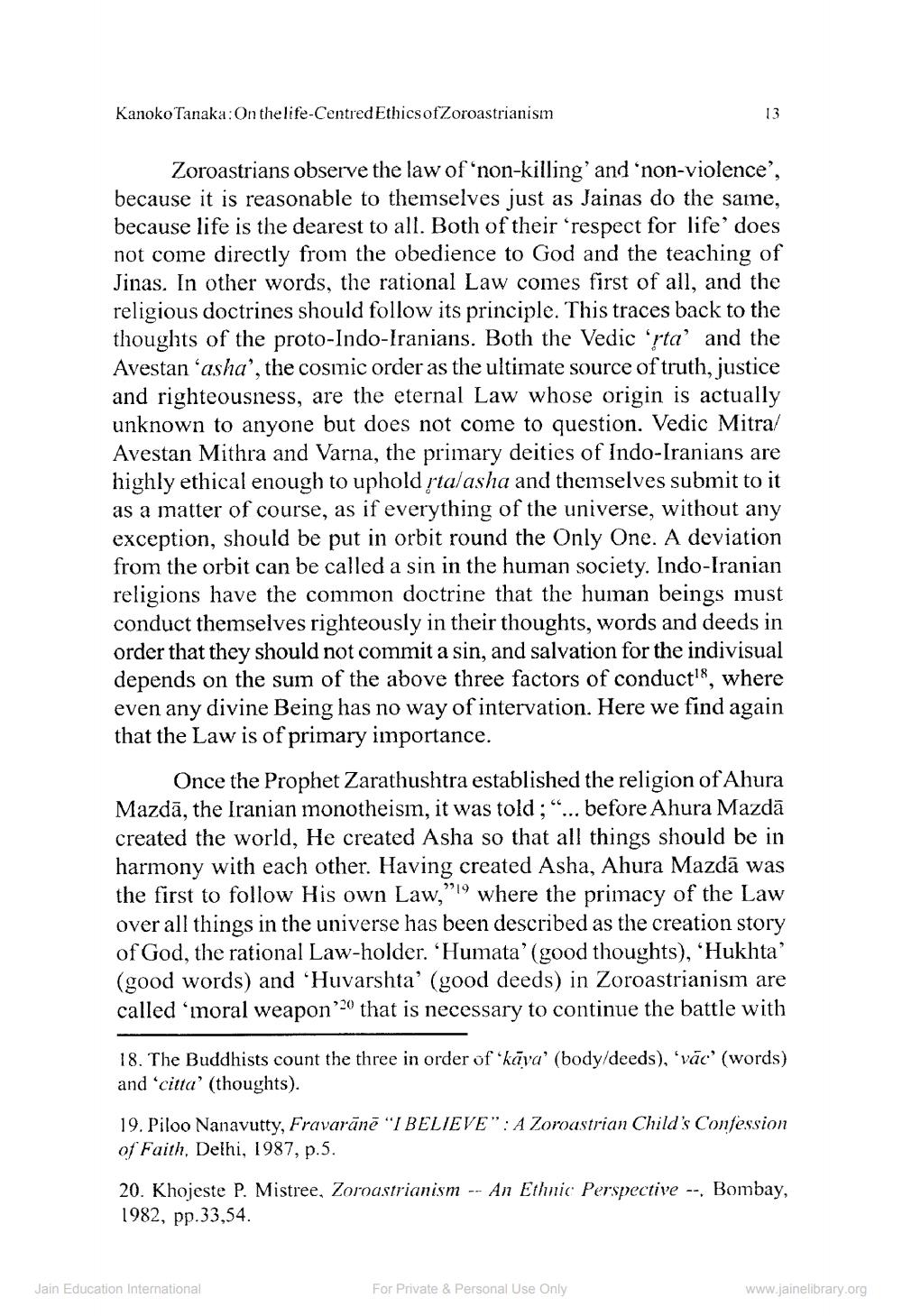Book Title: Jain Journal 2007 07 Author(s): Jain Bhawan Publication Publisher: Jain Bhawan PublicationPage 12
________________ Kanoko Tanaka: On thelife-Centred Ethics of Zoroastrianism Zoroastrians observe the law of 'non-killing' and 'non-violence', because it is reasonable to themselves just as Jainas do the same, because life is the dearest to all. Both of their respect for life' does not come directly from the obedience to God and the teaching of Jinas. In other words, the rational Law comes first of all, and the religious doctrines should follow its principle. This traces back to the thoughts of the proto-Indo-Iranians. Both the Vedic 'rta' and the Avestan 'asha', the cosmic order as the ultimate source of truth, justice and righteousness, are the eternal Law whose origin is actually unknown to anyone but does not come to question. Vedic Mitra/ Avestan Mithra and Varna, the primary deities of Indo-Iranians are highly ethical enough to uphold stalasha and themselves submit to it as a matter of course, as if everything of the universe, without any exception, should be put in orbit round the Only One. A deviation from the orbit can be called a sin in the human society. Indo-Iranian religions have the common doctrine that the human beings must conduct themselves righteously in their thoughts, words and deeds in order that they should not commit a sin, and salvation for the indivisual depends on the sum of the above three factors of conduct!, where even any divine Being has no way of intervation. Here we find again that the Law is of primary importance. Once the Prophet Zarathushtra established the religion of Ahura Mazdā, the Iranian monotheism, it was told;"... before Ahura Mazdā created the world, He created Asha so that all things should be in harmony with each other. Having created Asha, Ahura Mazdā was the first to follow His own Law,"\' where the primacy of the Law over all things in the universe has been described as the creation story of God, the rational Law-holder. 'Humata' (good thoughts), 'Hukhta' (good words) and 'Huvarshta' (good deeds) in Zoroastrianism are called "moral weapon”20 that is necessary to continue the battle with 18. The Buddhists count the three in order of kāva' (body/deeds), 'vāc' (words) and ‘citta' (thoughts). 19. Piloo Nanavutty, Fravarānē “I BELIEVE": A Zoroastrian Child's Confession of Faith, Delhi, 1987, p.5. 20. Khojeste P. Mistree, Zoroastrianism -- An Ethnic Perspective --, Bombay, 1982, pp.33,54. Jain Education International For Private & Personal Use Only www.jainelibrary.orgPage Navigation
1 ... 10 11 12 13 14 15 16 17 18 19 20 21 22 23 24 25 26 27 28 29 30 31 32 33 34 35 36 37 38 39 40 41 42
